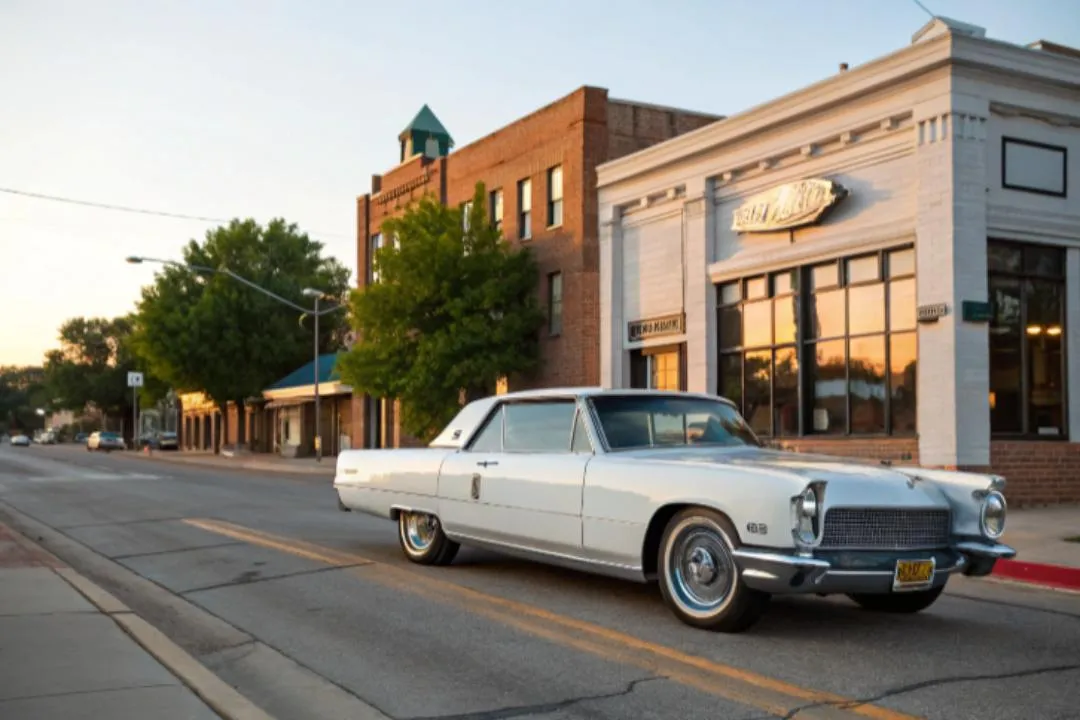
How to Register Your Classic Car: Complete Step-by-Step Guide
Owning a classic car is a journey into the heart of automotive history. Imagine cruising in a 1966 Shelby Cobra, a 1959 Cadillac DeVille, or a 1970 Dodge Challenger, each curve of the road connecting you to an era of timeless design. To legally enjoy your vintage ride, you must navigate the complex landscape of classic car registration. Every U.S. state has distinct regulations, from age thresholds and usage restrictions to documentation and plate options. Errors can lead to fines, revoked plates, or vehicle impoundment, while proper registration unlocks tax savings, insurance benefits, and legal protections.
This guide offers a detailed roadmap to registering your classic, antique, or historic vehicle. You’ll learn how to classify your car, meet eligibility criteria, prepare paperwork, and comply with state-specific rules. Updated with 2024–2025 insights, this resource equips both novice and seasoned owners to keep their classics street-legal.
Understanding Classic, Antique & Historic Vehicle Categories
Definitions & Age Thresholds (Federal & State Variations)
The terms classic, antique, and historic shape how your vehicle is registered and driven. A classic car, typically 20 to 25 years old, is valued for its collectible appeal. An antique vehicle, usually 30 to 45 years or older, is preserved for historical significance. Historic vehicles, often overlapping with antiques, carry cultural value and may have usage restrictions. The National Highway Traffic Safety Administration (NHTSA) sets a 25-year threshold for federal import exemptions, but states define their own standards.
Texas classifies vehicles 25 years and older as classics, while Arkansas requires 45 years for antiques. California sets 25 years for classics and 30 for antiques, and New York follows a 25-year classic threshold. These variations affect plate eligibility and inspection requirements. Checking your state’s DMV website clarifies the age requirements for your vehicle.
Classic vs Antique vs Historic: Practical Differences
Your vehicle’s category impacts costs, driving privileges, and compliance obligations. Classic registrations often require annual safety inspections but allow broader use, such as limited daily driving in Illinois. Antique plates, prevalent in Florida, are permanent, eliminating renewal fees, but restrict driving to car shows or maintenance trips. Historic plates, like those in New York, prioritize preservation, capping mileage at 5,000 miles annually in Nevada.
A 1996 Mustang might qualify as a classic in Texas, allowing occasional drives, while a 1957 Thunderbird registered as an antique in Virginia is limited to events. Insurance premiums are lower for antiques due to restricted use. Choosing the right category aligns your registration with your driving habits and state rules.
2024–2025 Legislative Updates Affecting Classifications
Recent legislation has transformed classic car registration. Texas eliminated safety inspections for non-commercial vehicles in January 2025, but emissions tests remain in 17 counties for classics not registered as antiques. California’s 2024 DMV portal upgrade streamlined e-title applications. New York’s 2025 rules tightened VIN verification for gray-market imports, requiring detailed ownership records. Nevada’s Assembly Bill 349, effective since 2021, mandates collector-car insurance for classic plates.
These changes balance collector benefits with safety and environmental standards. Staying informed via your state’s DMV or sources like Hagerty Media ensures you navigate new regulations effectively.
Eligibility Criteria Checklist

Age, Condition & Originality Requirements
To qualify for classic or antique registration, your vehicle must meet state-specific standards. Most states require 25 years for classics and 30 to 45 years for antiques. The car must be roadworthy, either restored to factory specifications or well-maintained. Originality is crucial in California, where significant modifications may disqualify a vehicle, but Montana permits modified classics. If you're unsure what qualifies as original, refer to this detailed guide on how to prove originality for classic car registration, which breaks down documentation, restoration standards, and state expectations.
A 1972 Pontiac GTO in Texas must be 25 years or older and restored for classic status, while Arkansas requires a certificate of authenticity for antiques. Reviewing DMV guidelines confirms your car’s eligibility and avoids registration delays.
Usage-Pattern Requirements (Proof of Primary Vehicle, Mileage Caps)
Many states mandate proof that your classic isn’t your daily driver, often requiring registration of a modern vehicle in your name. Usage restrictions include mileage caps, like Nevada’s 5,000 miles annually, verified by odometer readings. Florida and Virginia limit antiques to events, requiring logbooks.
You may need to provide another car’s registration as proof of a primary vehicle and track mileage. Non-compliance risks fines or plate revocation, so accurate record-keeping is vital.
Import & Gray-Market Classics: Special Eligibility Rules
Gray-market classics, imported outside standard channels, face additional requirements. The NHTSA’s 25-year exemption allows older vehicles to bypass modern standards, but California requires smog certifications for post-1975 models. New York’s 2025 rules demand comprehensive import documentation. Bonded titles, secured with a surety bond, are needed if paperwork is missing. Contacting your DMV early clarifies these regulations.
Key Benefits of Classic Car Registration
Tax & Fee Reductions (Nationwide Examples)
Classic registration offers significant cost savings. Arkansas charges a one-time $7 fee for antique plates on vehicles 45 years and older, with no renewals. Florida waives the $225 initial fee for antiques, providing permanent tags. Texas charges $50.75 annually for classics, and Alabama exempts low-value classics, under $4,000, from sales tax. These savings support collectors with multiple vehicles.
Insurance Advantages (Agreed-Value, Lower Premiums)
Classic car insurance from providers like Hagerty or Grundy offers agreed-value coverage, ensuring your car’s full collector value. Premiums are 30 to 50 percent lower than standard policies due to limited use. Insuring a $55,000 classic in California might cost $320 to $580 annually, compared to $1,400 for a modern car. Policies may include spare parts and car show expense coverage.
Legal Road-Use Protections & Liability Shielding
Special plates grant legal driving rights for events and limited use, exempting your classic from standard regulations. New Jersey’s antique plates waive inspections and offer three-year renewals. Proper registration reduces accident liability by proving compliance, safeguarding you from legal risks.
Pre-Registration Preparation
Title & Ownership Verification (Lost or Bonded Titles)
A valid title is critical. If lost, apply for a duplicate through your DMV with proof of ownership, such as a bill of sale. For vehicles without records, Texas and California offer bonded titles, requiring a surety bond. New York’s 2025 rules mandate VIN checks for classics. Gathering documents early prevents delays.
VIN & Safety Inspections (Required vs Waived States)
VIN inspections verify your car’s identity, mandatory in California and New York, particularly for imports. Safety inspections vary: Texas waived them in 2025, but classics may require annual checks. Antique plates in Florida and Virginia skip inspections for event-only use. Checking DMV requirements helps you schedule inspections.
Digital/Online DMV Portals & e-Title Options (2024–2025)
Digital portals simplify registration. California’s 2024 upgrade supports e-title applications. Texas offers online renewals 90 days before expiration, and New York provides e-registrations for verified titles. Exploring your state’s online options ensures efficient submission.
Step-by-Step Registration Process
Document Bundle (Mandatory & Optional)
Prepare a complete package, including:
Title or bonded title.
Proof of collector-car insurance.
Registration application.
VIN inspection report, if required.
Proof of primary vehicle, in states like Nevada.
Optional documents include a bill of sale, restoration affidavit, or emissions exemption forms, like Nevada’s EC 018. Submit via mail, in person, or online, ensuring all forms are included.
Fee Schedule Types (One-Time, Annual, Multi-Year)
Fees vary by state. Florida’s antique plates are permanent, waiving the $225 fee. Texas charges $50.75 annually for classics. Nevada’s classic plates cost $10 to $36 initially, with multi-year renewals. Additional costs, like specialty plate fees, may apply.
Securing Plates
Standard “Historic”
Historic plates identify your car as a collectible, often with event-only limits. Costs range from $10 in Georgia to $80 in Nevada.
Personalized Antique
Illinois offers personalized antique plates, costing $30 to $100, with 60 to 90-day processing.
Year-of-Manufacture (YOM)
YOM plates, matching your car’s model year, are available in California and Virginia, costing $50 to $150, requiring DMV approval.
State-By-State Variations (Quick-Reference Matrix)
California
California requires 25 years for classics and 30 for antiques. Post-1975 models need smog tests unless historic. YOM plates need approval, with fees of $50 to $100. Antique plates cap mileage at 2,500 annually.
Texas
Texas classifies 25-year-and-older vehicles as classics and 30 and older as antiques. Safety inspections were waived in 2025, but emissions apply in 17 counties. Antique plates limit use to events, with a $50.75 fee.
New York
New York’s 25-year classic threshold requires VIN and safety inspections. Historic plates limit use, with fees of $28 to $60. The 2025 import rules demand ownership records.
Florida
Florida’s 30-year-and-older antiques waive inspections and the $225 fee. Permanent plates restrict use to events.
Illinois
Illinois offers antique plates for 25-year-and-older vehicles, exempting inspections for event-only use. Fees are $30 to $50, with personalized options.
Additional States Snapshot (VA, PA, NJ, AZ, WA)
Virginia’s $50 one-time antique plates waive inspections for 25-year-and-older vehicles, limiting use to events. Pennsylvania requires safety checks for classics but offers $75 one-time antique plates. New Jersey’s historic plates cost $44 for three years. Arizona charges $8 for historic plates plus a $32 safety fee. Washington’s collector plates, $35 to $50, restrict 30-year-and-older vehicles to events.
Usage Restrictions & Compliance
Mileage Limits, Event-Only Clauses & Logbook Tips
Antique and historic plates have strict limits. Nevada caps classics at 5,000 miles annually. California restricts antiques to 2,500 miles, and Florida and Virginia limit them to events. Logbooks tracking dates, mileage, and events ensure compliance. Apps like MileIQ simplify record-keeping.
Proving Event Attendance & Maintenance Trips
Retain car show registrations, parade permits, or repair receipts. Florida and Virginia may audit these. Storing records in Google Drive ensures accessibility during DMV checks.
Legal Considerations
State & Federal Compliance Basics
State laws govern registration, while the NHTSA’s 25-year import exemption applies to gray-market vehicles. Compliance involves meeting age, condition, and usage rules, securing plates, and maintaining insurance.
Penalties for Non-Compliance (Fines, Plate Revocation, License Risks)
Non-compliance risks fines, $100 to $200 in Texas, or plate revocation, five years in Virginia. Expired tags may lead to impoundment. Renewing on time and following rules prevents penalties.
Liability & Insurance Voidance Risks
Without registration and insurance, you’re liable in accidents. Standard policies exclude classics, but collector-car insurance ensures coverage. Lapses void protections, risking financial loss.
When to Consult an Attorney or Professional Registration Service
Complex cases, like imports or lost titles, benefit from experts. Street Legal Hookup, serving owners across U.S. states, navigates legal hurdles, ensuring compliance.
Classic Car Insurance Essentials
Choosing a Collector-Car Carrier (Hagerty, Grundy, etc.)
Hagerty and Grundy offer tailored policies. Hagerty’s flexible mileage suits active drivers, while Grundy focuses on high-value vehicles. Compare coverage and premiums to choose.
Policy Structures: Agreed Value, Spare-Parts Coverage, Storage Requirements
Agreed-value coverage guarantees your car’s value. Spare-parts coverage protects components, and storage requirements mandate secure facilities. Policies cover towing and show expenses.
Claims & Repair Protocols for Vintage Vehicles
Claims require appraisals and repairs by vintage specialists. Hagerty and Grundy use OEM parts. Submitting photos and estimates promptly speeds up the process.
Maintaining Registration Over Time
Renewal Frequencies & Lifetime Plate Programs
New Jersey’s historic plates renew every three years, while Florida’s antique plates are permanent. Virginia and Arkansas offer lifetime plates. DMV e-notifications help track deadlines.
Record-Keeping, Mileage Logs & Inspection Proofs
Store registration documents, mileage logs, and inspection proofs. Digital backups on Dropbox ensure accessibility. Nevada’s odometer certifications require updated logs.
Ownership Transfer, Estate & Gifting Procedures
Transfers need a signed title, bill of sale, and odometer reading. Estate transfers may require probate documents, and gifting needs affidavits in Illinois. Check DMV rules.
Why Choose Street Legal Hookup for Your Classic Car Registration
For over a decade, Street Legal Hookup has empowered classic car owners across U.S. states with seamless registration solutions. Their team of seasoned professionals, with deep expertise in state and federal regulations, has successfully registered thousands of classics, from 1950s Chevys to rare European imports.
They’ve resolved complex cases, like securing bonded titles for a 1963 Jaguar E-Type with missing paperwork and navigating California’s smog requirements for a 1976 Porsche 911. Their nationwide network ensures compliance with every state’s rules, saving you time and avoiding costly errors. With a passion for classics and a commitment to personalized service, Street Legal Hookup turns registration challenges into stress-free successes, letting you focus on the open road.
Frequently Asked Questions (FAQ)
What qualifies a vehicle for classic plates in my state?
Most states require 25 years for classics and 30 to 45 for antiques, in good condition, used for events. Check your DMV’s website for specifics.
Can I drive my registered classic daily?
Antique and historic plates limit driving to events. Classic plates in Texas allow broader use with mileage caps. Verify with your DMV.
How do online DMV services streamline antique registration?
Portals in California and Texas support e-titles and renewals, reducing DMV visits. Digitized documents speed up processing.
Are emissions tests always exempt for classics?
Texas requires emissions in 17 counties, and California mandates smog for post-1975 vehicles. Antiques are often exempt.
How is an imported classic titled and registered?
Imports over 25 years need VIN inspections and bonded titles if paperwork is missing. California may require smog checks.
What happens if I exceed my mileage limit?
Exceeding Nevada’s 5,000-mile limit risks fines or plate loss. Keep logs and consult your DMV.
Can an EV-converted classic keep its antique status?
California allows EV conversions to retain status if age criteria are met, but Texas may reclassify. Check with your DMV.
How do I register a car with no title or lost paperwork?
Apply for a bonded title in Texas or California with a surety bond. Processing takes 2 to 4 weeks.
Are there federal rules that override state antique laws?
Federal import exemptions apply, but state laws govern registration. Follow state criteria.
What insurance documentation must accompany my application?
Provide liability insurance proof, like $30,000/$60,000/$25,000 in Texas. Some states require collector-car insurance.
Conclusion & Next Steps
Registering your classic car ensures legal driving, cost savings, and peace of mind. From classifying your vehicle and securing plates to navigating state rules and maintaining compliance, this guide equips you to keep your vintage ride street-legal.
Whether in California, Texas, or New York, proper registration unlocks benefits, letting you focus on the joy of driving. For a seamless process, trust Street Legal Hookup, serving owners across U.S. states. Book a consultation today to make your classic road-ready.



